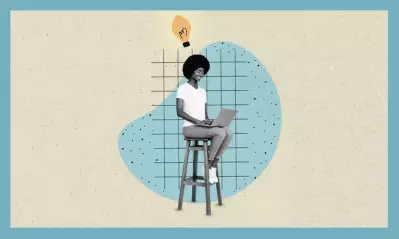5 ways to improve your soft skills as an employee and student

Written by Michael Feder

Reviewed by Jessica Roper, MBA, director of Career Services at University of Phoenix

Unlike hard skills, which are the knowledge and ability required to work a specific job, soft skills are non-technical abilities that allow people to work effectively in a professional setting. In other words, soft skills help people connect, communicate and collaborate. These traits can set job seekers apart from others who have the same certifications, degrees and technical knowledge.
A McKinsey & Company article about soft skills cites a survey in which 80% of executives worldwide said reskilling their workforce was a concern and a priority . As artificial intelligence and algorithm-based programs take over time-consuming manual tasks, employees need to develop new abilities. Soft skills will play a vital role as many employees move to positions requiring more collaboration and creativity and less rote work.
The challenge is to find opportunities to learn and develop these traits.
Which soft skills to develop
As mentioned, it can be helpful to develop a comprehensive tool kit of soft skills . While some of these non-technical abilities are universally valuable in the workplace, some may be especially helpful in particular industries or specialties.
For instance, managers may emphasize strategic thinking, delegating and conflict resolution, and those in positions requiring innovation should be creative and able to communicate ideas effectively.
While the necessary skills can differ, one idea is the same across all industries. A LinkedIn® survey found that 92% of hiring managers and talent professionals agreed that soft skills were increasingly important in the age of AI and automation . While algorithms can handle technical tasks, they cannot duplicate human communication, collaboration or motivational skills.
Here are five essential soft skills that can serve you regardless of industry or specialization.
1. Organization
Organizational skills help employees tackle multiple tasks, meet deadlines and delegate. Organized professionals go through their workdays with a clear vision of their duties and daily goals or benchmarks they need to meet.
Those with well-developed organizational skills can handle more complex tasks. By accomplishing challenging duties, employees can make themselves more valuable to their company. They may earn additional responsibilities as well as the salary and perks that come with them.
Meanwhile, students have to juggle multiple courses and academic challenges at once. School is an excellent setting for developing organizational abilities.
2. Communication
Communication is a collection of related soft skills. Effective communicators are usually associated with traits like charisma and storytelling ability. However, in work and academic settings, characteristics like empathy and the ability to listen and respond to others are also essential for communication.
Communication helps you explain ideas, needs and plans. It can also get others to buy into a specific strategy or goal. Good communicators create unity and purpose among team members.
While communication is often associated with executives and senior managers, team members working on projects with one or more of their peers also benefit from developing communication skills.
3. Networking
Networking is the art of building relationships that assist your career plans. Networking starts during your academic career. If you build relationships with peers and professionals, it could lead to internships and entry-level job opportunities. Even if you do not receive direct offers, people in your professional network can deliver information about opportunities or job-seeking strategies.
Networking opportunities can happen at school, professional events, conferences, alumni gatherings, trade shows and just about anywhere else.
4. Leadership
Leadership is a necessary skill for anyone who wants to advance to a senior role within a company. As with communication, it is a collection of related traits, such as the ability to delegate tasks, inspiring people to complete them and building a team based on each worker’s technical and soft skills.
Leadership is not only for those with C-suite ambitions. Any professional who wants to advance will benefit from developing their abilities to manage, inspire and organize others. Leaders can emerge within a team of peers, making themselves more valuable to their employers and becoming essential members of their work groups.
5. Teamwork
Have you heard the saying “teamwork makes the dream work”? That’s because when you have a group of people working on one project, you can delegate the tasks to people’s strengths or allow overall collaboration for growth. Productive and successful outcomes can happen. Being able to work with a team as well as being self-sufficient is a great quality to have in almost any career.
Soft-skill training options for employees
You can develop soft skills through formal or informal training programs. These learning opportunities focus directly on a soft skill or provide educational settings where employees learn soft skills indirectly.
Professional development programs
In professional development programs a company or third party offers structured courses. They are designed to improve the knowledge, skills and competencies of professionals already working in a specific field.
Professional development courses usually can be completed over a short time frame. They focus on experiential learning and hands-on activities that translate directly to the workplace. Depending on the subject, some traditional classroom work may be involved.
Because of the hands-on nature of many professional development courses, participants have the chance to develop communication, leadership and organizational skills in a realistic setting without the pressure of real work.
Taking on additional responsibility
Employees gain skills by going beyond their roles. In professional settings, this effort is often referred to as going beyond your comfort zone.
Employees actively seeking challenging projects can develop soft skills through those activities as well. Examples of this type of on-the-job learning include leading a cross-functional team, working with clients or managing a complex task involving multiple departments.
Creativity, adaptability and problem-solving skills are essential for those who move beyond their area of expertise. Individuals also learn how to delegate and manage team members with different skill sets.
In many settings, managers see additional value in employees with the ambition to move beyond their specialized area.
Workplace mentorship programs
Workplace mentorship programs match inexperienced employees with experienced mentors to foster personal and professional growth. Mentors work alongside their mentees and share technical knowledge and soft skills. They offer advice that mentees can immediately apply to their work tasks, reinforcing what they learn.
Mentorship programs often have regular meetings and open communication. Through these arrangements, a company can foster a culture of learning, showing mentees how to continually develop skills during their careers.
Soft-skill development options for students
Employees of all skill and experience levels can seek opportunities outside of the workplace. Some programs, like internships, are geared toward novices and entry-level employees. Others, like certificate and professional development courses, provide training for people in all stages of their careers.
Internships
Internship programs provide work experience to people without on-the-job knowledge. Although these programs are typically for students to gain work experience in their field of study, they can also provide experience in a new area for established professionals or those seeking a career change.
Because internships are immersive experiences, interns can develop soft skills naturally as they complete their tasks. Others in the workplace may offer guidance. Although internship experiences vary, they usually do not have the same requirements as full-time positions. This dynamic allows interns the chance to develop soft skills in a lower-pressure environment.
Community service
Community service initiatives allow students to develop soft skills while making a difference in their community. These programs range from volunteer opportunities in a food bank, school, development project or community outreach center.
One advantage of community service experiences is the lack of a lengthy or competitive application process. Also, many community service initiatives are project based, giving you the chance to develop skills similar to those you’d use in a work-based project. Communication, organization and traits like empathy are essential in most community-focused work.
Project management and CRM courses
Project management involves planning, executing and monitoring projects to meet goals, while client relationship management (CRM) focuses on interactions and connections with clients. Both areas demand technical expertise, strategic thinking and strong communication.
Project management courses and CRM courses focus on the organization and communication skills needed to complete campaigns and projects. In addition to stand-alone courses, project management is part of advanced degrees, such as a master’s in data science or a master's in information systems.
Certificate programs
A certificate program is a targeted and focused educational curriculum that provides individuals with specialized learning and skills in a specific area. Certificate programs often provide technical knowledge, but they also offer hands-on training in which you can develop soft skills in a work-like environment.
Some occupations, such as IT, have many specialized certificate programs , including advanced options
for professionals who want to take a leadership role in their field.
Certificate programs exist in almost every sector, so you can find opportunities whether you work in tech, customer service, marketing, healthcare or any other industry.
Career support at University of Phoenix
University of Phoenix (UOPX) prides itself on being able to offer career-relevant skills in various fields that employers are looking for. Not only will you learn helpful skills in the courses you take, but UOPX also offers career resources to help you get started:
- Career Services for Life®: Available to UOPX students and graduates, this offering provides complimentary career coaching, including help with looking for a job, building a personal brand and writing a resumé.
- Free career resources
: Explore a range of downloadable guides and templates to help you optimize your LinkedIn® profile, write a cover letter and get ready for a job interview.
- The Career With Confidence® newsletter: Get career insights every week via UOPX’s LinkedIn newsletter.

ABOUT THE AUTHOR
A graduate of Johns Hopkins University and its Writing Seminars program and winner of the Stephen A. Dixon Literary Prize, Michael Feder brings an eye for detail and a passion for research to every article he writes. His academic and professional background includes experience in marketing, content development, script writing and SEO. Today, he works as a multimedia specialist at University of Phoenix where he covers a variety of topics ranging from healthcare to IT.

ABOUT THE REVIEWER
Jessica Roper, University of Phoenix director of Career Services, is a seasoned leader with over 15 years of experience in leadership within higher education. She has honed her expertise in student services and career development and is passionate about helping others discover and refine their skills.
This article has been vetted by University of Phoenix's editorial advisory committee.
Read more about our editorial process.
Read more articles like this:


